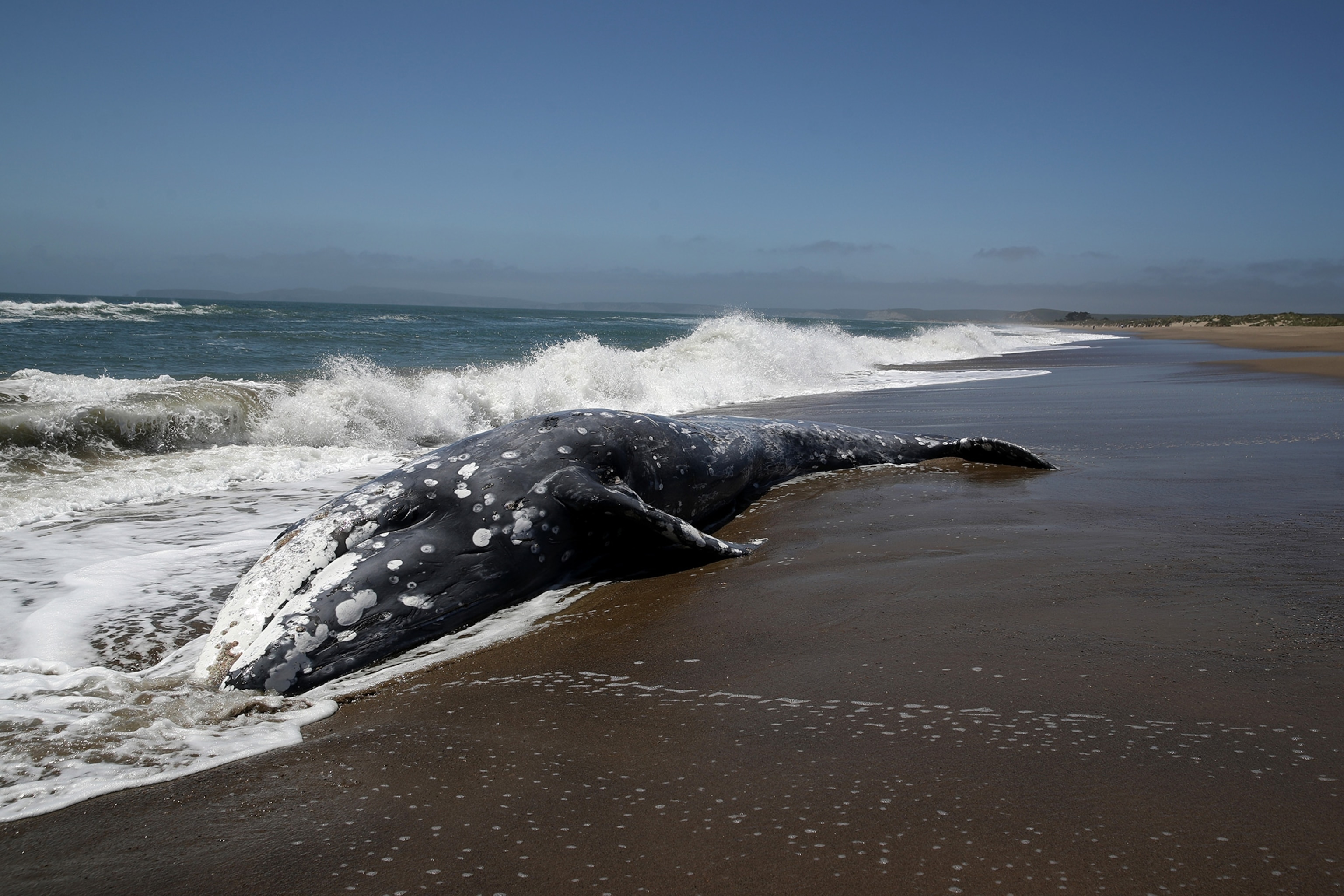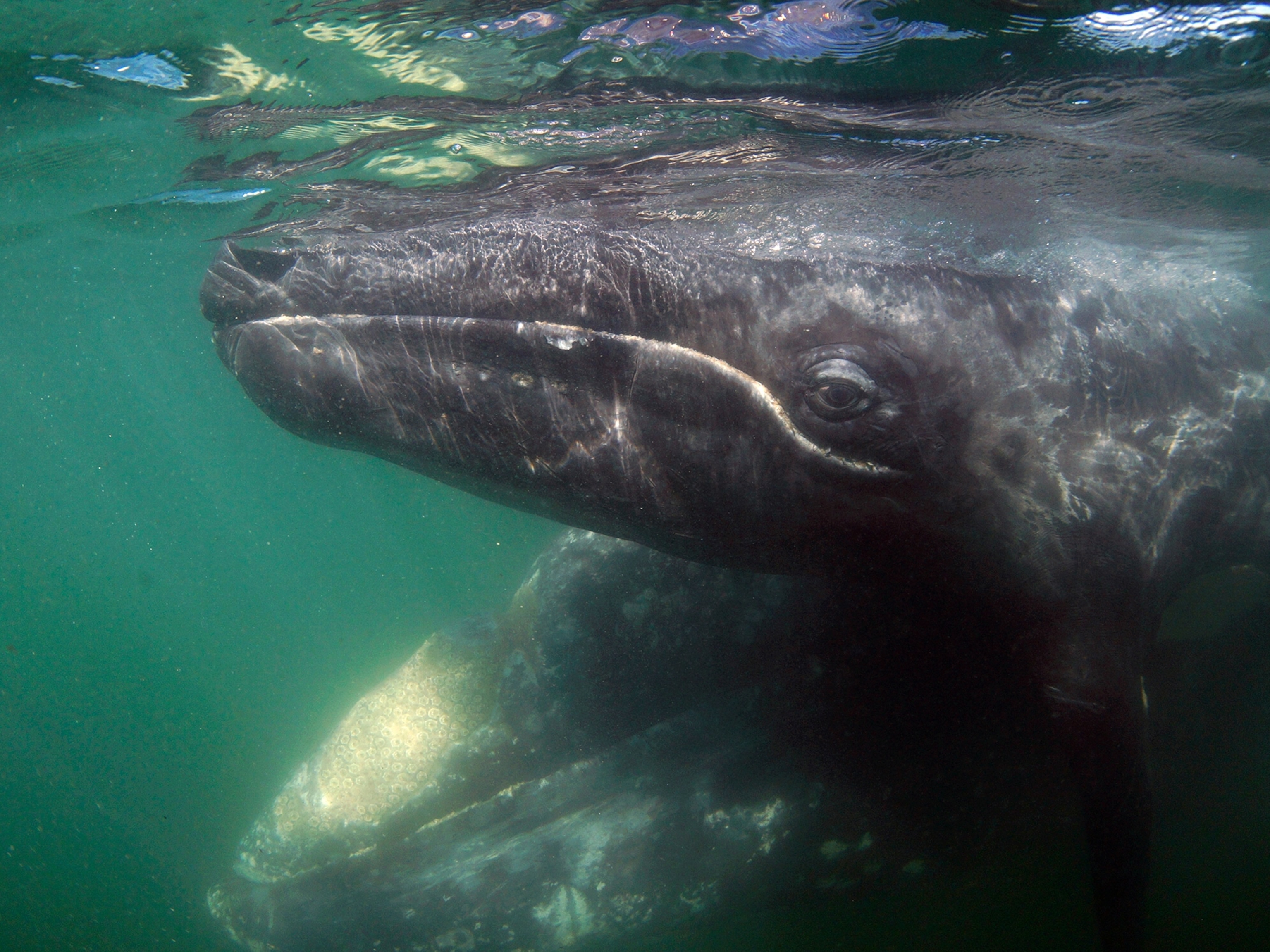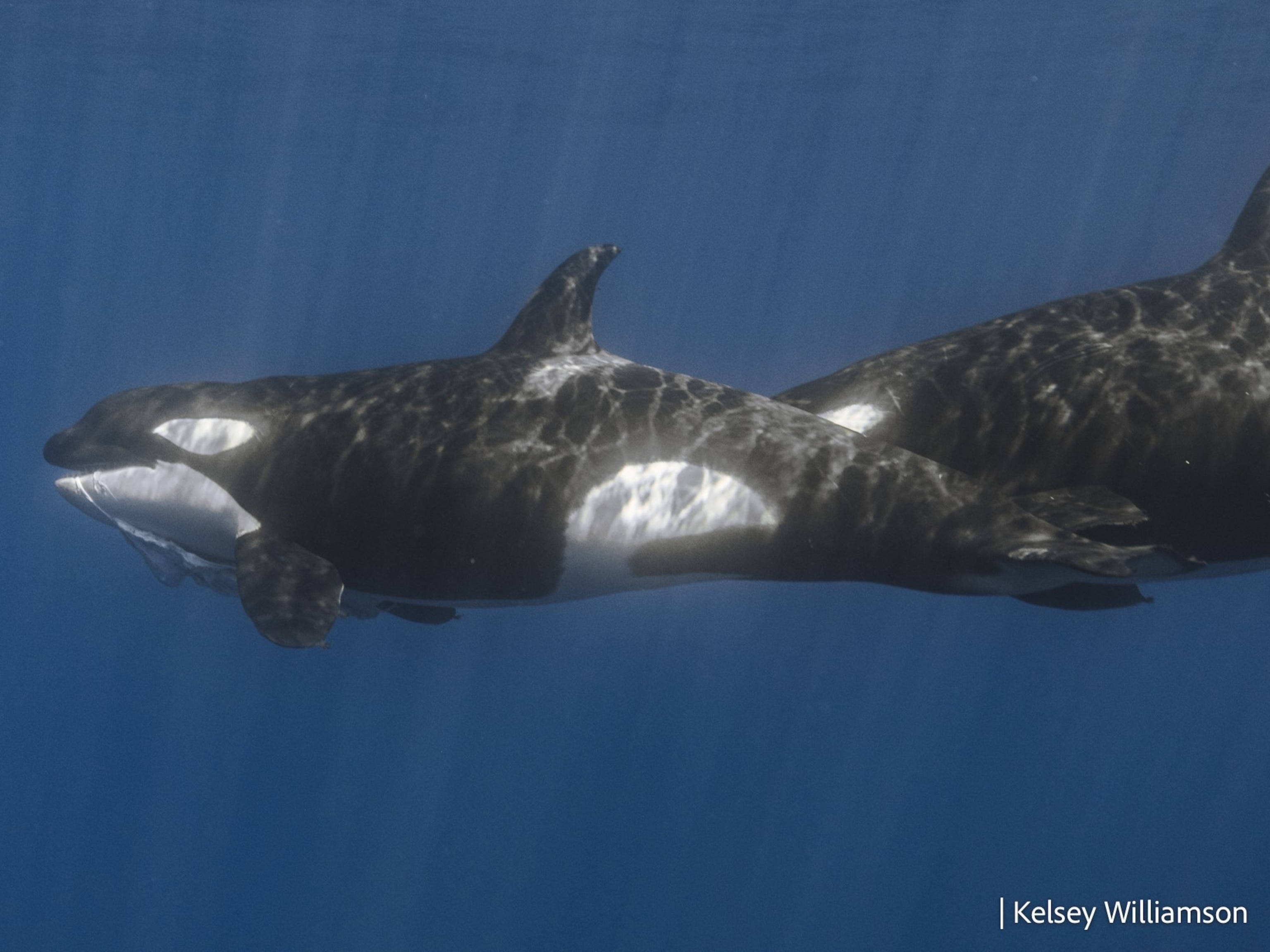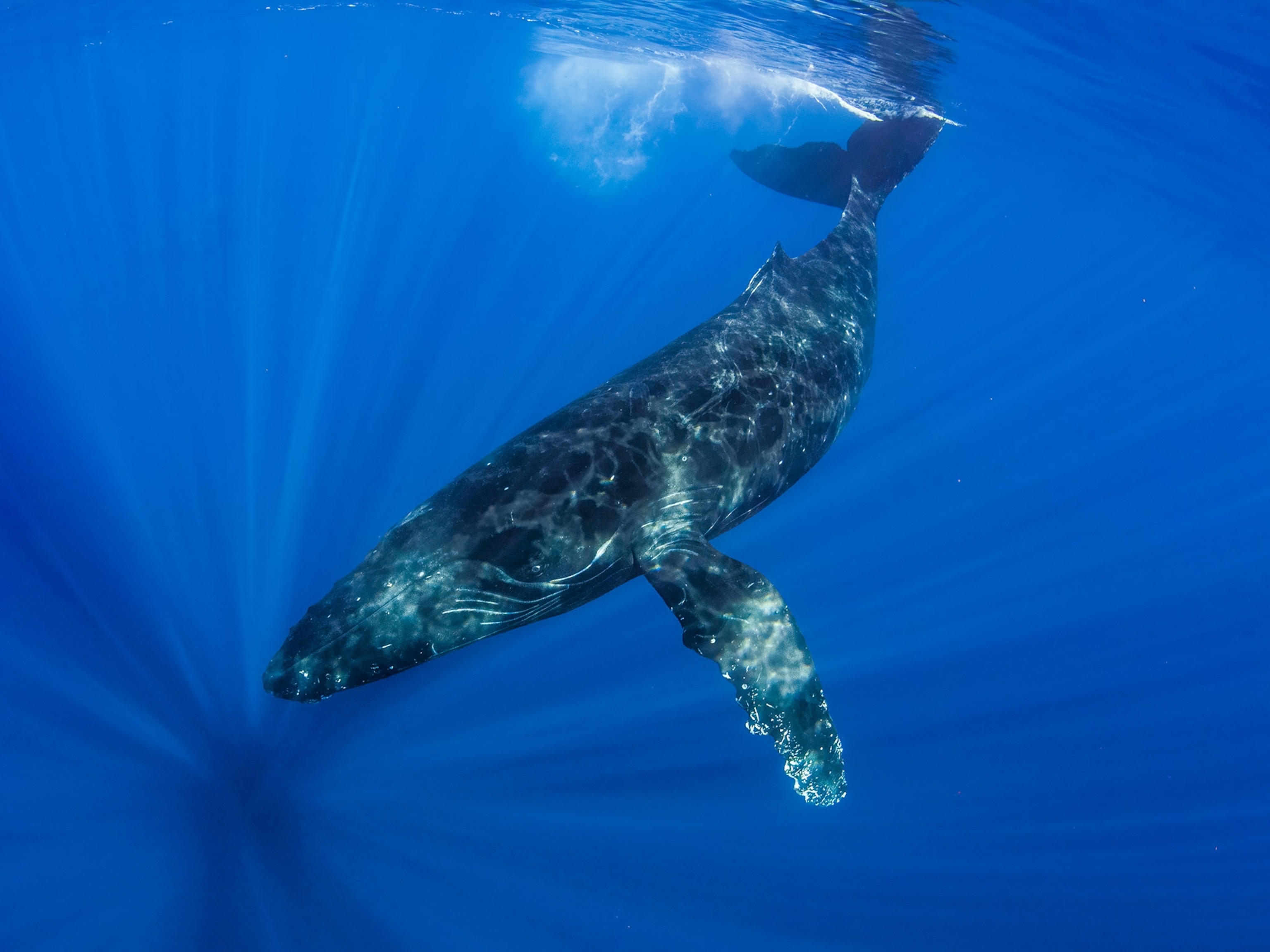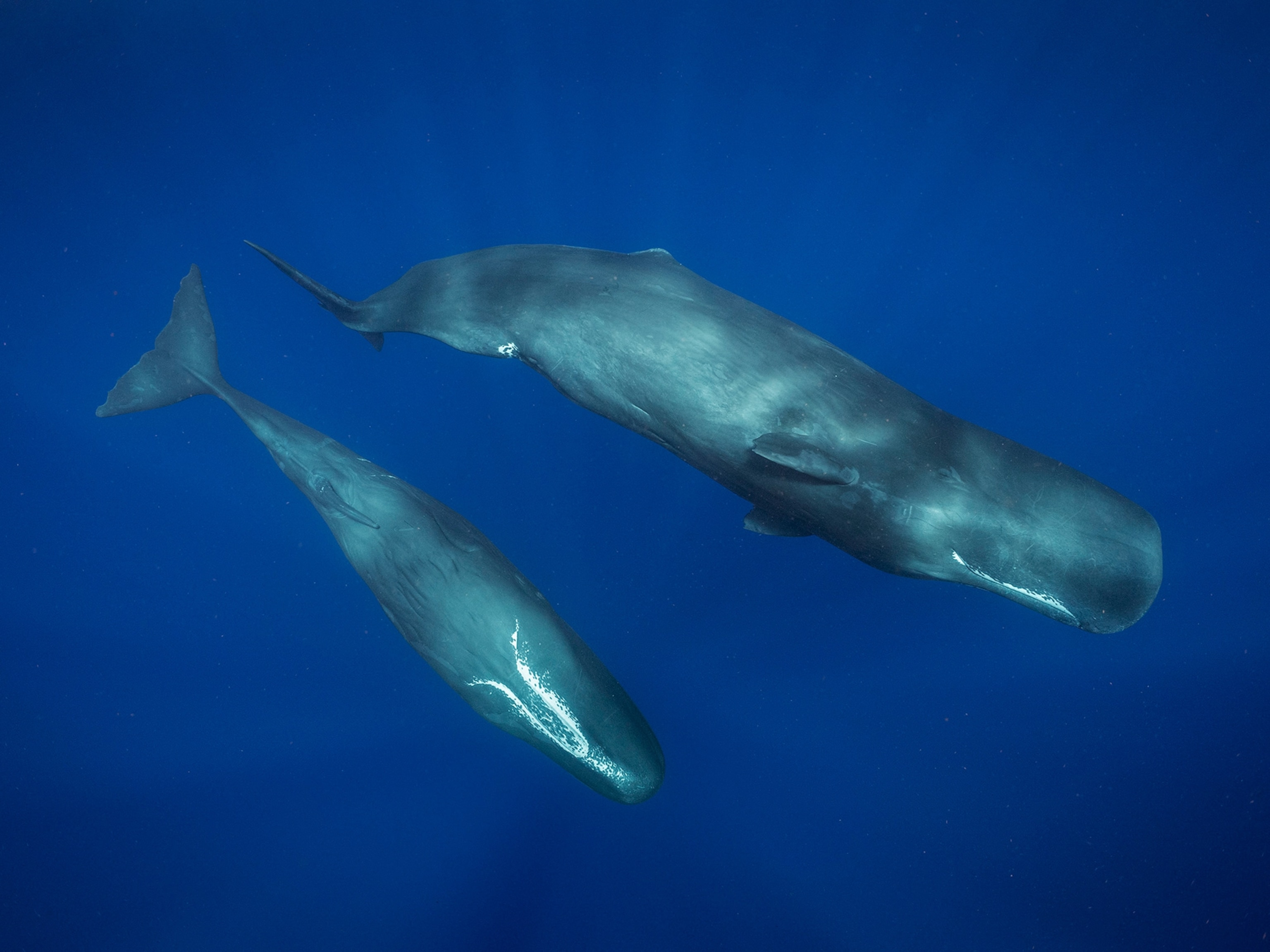Gray whales migrate more than 10,000 miles up and down the western coast of North America, longer than almost any other mammal. In summer, they head north, often as far as Alaska’s Aleutian Islands, and in the winter, they travel south, giving birth off the coast of Mexico.
New research suggests that solar storms may temporarily interfere with their ability to navigate on these long treks, perhaps even leading them to become stranded. It points to the possibility that gray whales may use Earth’s magnetic fields to navigate. Currently they are only conclusively known to find their way using their vision.
Solar storms—events on the sun in which large quantities of high-energy particles are ejected—bombard Earth with unusually high levels of electromagnetic radiation, which can interfere with human technologies like satellites and power grids. Most animals, including humans, are not thought to be significantly affected by solar storms, mainly because Earth’s magnetic field shields the planet from much of this radiation.
The finding that solar storms may contribute to whale strandings is described in a study published February 24 in the journal Current Biology, adding another factor to the list of phenomena linked to whales beaching themselves. Currently gray whales are getting stranded at unusually high levels, possibly related to starvation resulting from lower abundance of prey. More than 180 have stranded since January 2019, many times the normal average.
To better understand what factors might be linked to strandings, Jesse Granger, a sensory ecologist at Duke University, and colleagues examined the records of gray whales stranded alive since 1985 off the west coast of North America. These strandings were chosen to rule out other factors—the animals didn’t appear to be ill or injured upon ending up on the beach. So why were they beached?
The researchers found that on days with high levels of radio-frequency noise, as caused by solar storms, whale strandings were four times more likely.
Interfering signals
For some other animals, such as European robins, research has shown that broadband radio-frequency noise can temporarily prevent them from using their geomagnetic sense. This ability allows animals to sense the variations in Earth’s magnetic field, which vary by location, allowing them to know where they are and where they’re going.
Scientists hypothesize that’s what’s happening here, says Granger, currently a doctoral candidate.
“Although this paper does not offer conclusive evidence for magnetoreception in these whales, it does add an indication in this direction because it removes some other possible causes of strandings such as bycatch, ship strike, or obvious illness,” says Ellen Coombs, a researcher at University College London, who wasn’t involved in the paper. “Further, they look in real detail at the geophysical parameters that are affected by solar storms and the effect this has on whale navigation.”
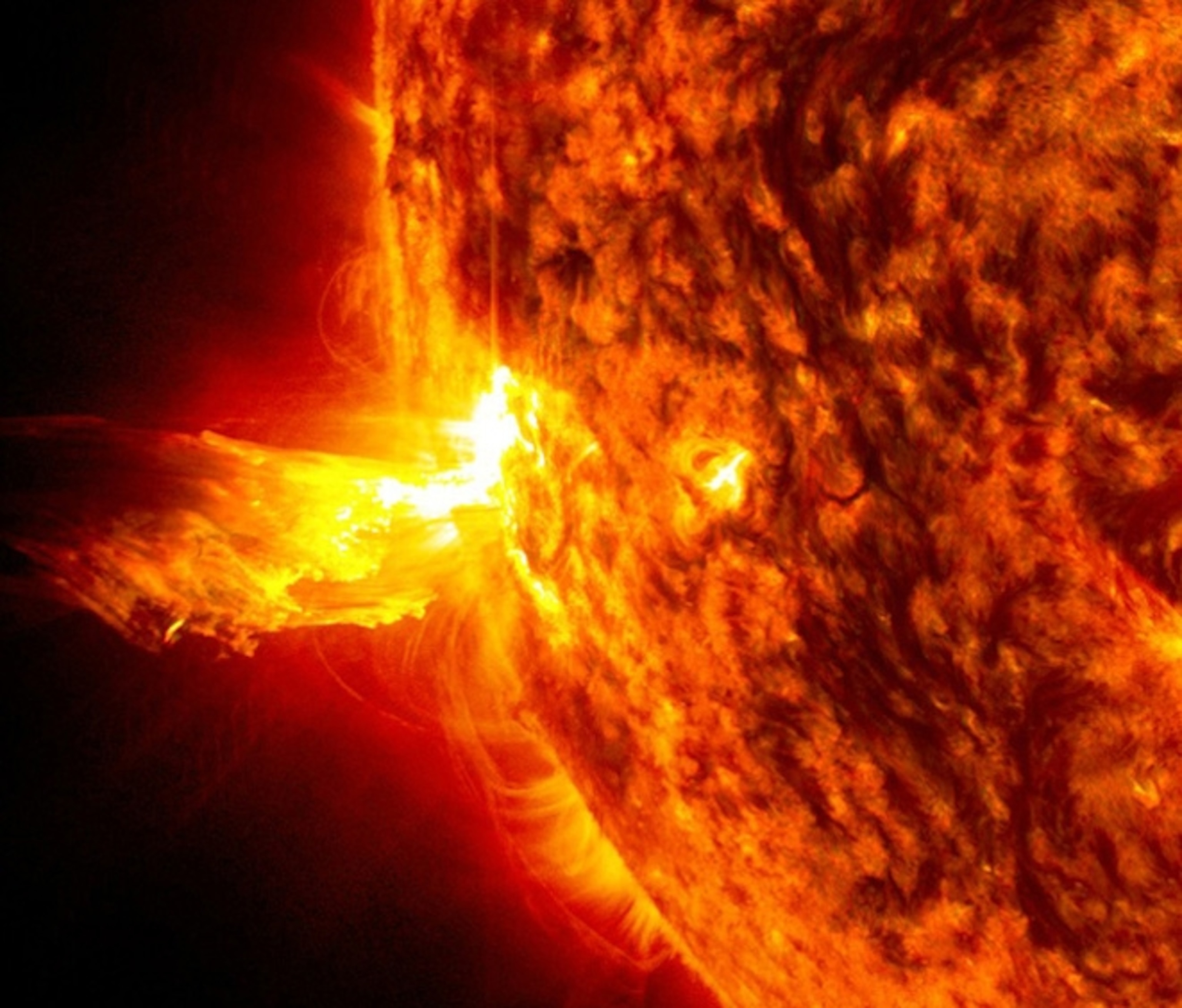
We know for sure that other marine animals—like sea turtles and salmon—migrate long distances underwater by sensing these magnetic fields, says Ken Lohmann, at the University of North Carolina, and this sense has also been found in animals as diverse as bees, birds, ants, termites, and likely some amphibians. (It’s unknown whether solar storms affect these animals’ abilities to navigate.)
Scientists have proven that some animals use magnetic sense by putting them within the coils of what are essentially large magnets—but whales are too big for such experiments.
Gray whales spend much of their time underwater, without visual cues, so it stands to reason they are using some sense other than their eyes, Coombs says.
Dazed and confused
In the paper, the scientists looked at other factors like climate cycles and seasonal variation, which didn’t seem to have any impact on strandings. They also examined how much Earth’s magnetic field wobbled around, a measure called the AP-index, to see if that was linked with strandings. But it wasn’t, a result that at first shocked Granger, because she expected that local variations in the magnetic field could lead the whale to get confused about its location and end up washed ashore.
The theory had been “that the whale thinks it’s on Fourth Street, but really it’s on Sixth Street,” Granger says. But that seems to not be the case. Rather, they may just be temporarily “blinded,” thus getting disoriented and stranding, she says.
Birds are thought to use special proteins in their retinas called cryptochromes to sense Earth’s magnetic field, and it’s plausible the radio-frequency noise interferes with this process, which depends on the brain to distinguish between very subtle electrochemical variations. There are, however, other ways to sense magnetism as well, including, for example using little bits of an iron mineral called magnetite found in some animals’ nervous systems.
Granger stresses there are many other factors linked with strandings, such as illness, starvation, ship strikes, and human technologies such as naval sonar and seismic airguns used in oil exploration.
“There is probably no single cause for strandings and no way to prevent them [all] from happening.” Lohmann says, “But it’s certainly helpful for conservation workers to become aware of factors that make strandings more likely.”
